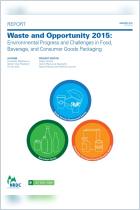Join getAbstract to access the summary!

Join getAbstract to access the summary!
Beth Gardiner
The Plastics Pipeline
A Surge of New Production Is on the Way
E360, 2020
What's inside?
How will the petrochemical industry’s need to sustain itself affect the environment?
Recommendation
The plastics industry is currently in a period of rapid expansion and enjoys high demand, particularly in the United States. In this grim but important piece, environmental journalist Beth Gardiner explains why the plastics industry is booming and why stopping it may prove nearly impossible.
Summary
About the Author
Beth Gardiner is an environmental journalist and author. She is a former Associated Press reporter whose work has appeared in major publications, from The New York Times to The Wall Street Journal.



















Comment on this summary